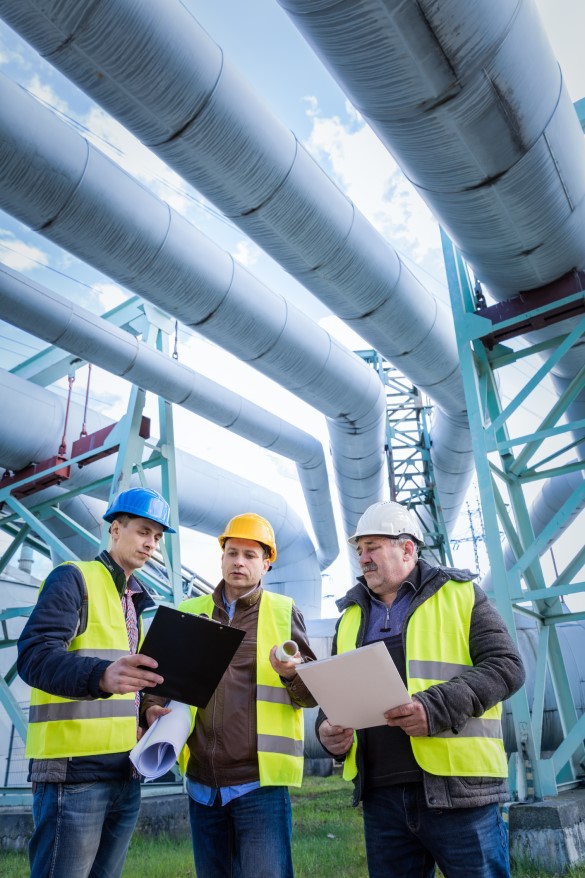We are carrying out periodic piping inspections in accordance with API Std 570 for above- and underground carbon steel and stainless steel pipelines.
General information
Project name: Framework agreement for pipeline inspections.
Date: 2016 - ongoing
Client: Terminales Portuarias S.L.
Location: Barcelona, Tarragona, Bilbao, Valencia
Country: Spain
Image copyright: ©SOCOTEC Spain
Talk to our experts
Project summary
Periodic piping inspections in accordance with API Std 570 for above- and underground carbon steel and stainless steel pipelines. The inspections are conducted using non-destructive testing appropriate for the potential pathologies in accordance with the reference standard, including pipes, welding, instrumentation and flanged joints. The data is analysed and necessary actions or repairs are recommended to ensure hermeticity and set out inspection plans and timeframes with a view to ensuring appropriate and founded preventive and predictive maintenance activities.
Project details
Periodic inspections of pipe sections corresponding to the berths (outside the plant) and those located inside the plant, including the pump pits. These inspections are carried out in accordance with the standards and recommended practices of the AMERICAN PETROLEUM INSTITUTE.

The scope of the work includes:
SOCOTEC team
- Exterior visual inspection of the entire surface, welding, supports, flanged joints, coatings, etc., with particular attention paid to the bottom, elbows and areas with a higher risk of corrosion.
- Interior visual inspection of all the accessible areas using remote inspection equipment.
- Thickness measurement using ultrasound in accordance with the provisions of the reference standards.
- Inspection by sections using long and short-range guided waves to identify and locate possible faults.
- Verification and characterisation of readings detected by Phased Array Ultrasonic Testing.
- Non-destructive testing (Magnetic Particle and/or Liquid Penetrant testing) of welding.
- Flanged joints undergo visual inspection and sampling of the joint components to determine whether they comply with the construction criteria and whether they have any potential pathologies.
- Exterior visual inspection of the entire surface, welding, supports, flanged joints, coatings, etc., with particular attention paid to the bottom, elbows and areas with a higher risk of corrosion.
- Interior visual inspection of all the accessible areas using remote inspection equipment.
- Thickness measurement using ultrasound in accordance with the provisions of the reference standards.
- Inspection by sections using long and short-range guided waves to identify and locate possible faults.
- Verification and characterisation of readings detected by Phased Array Ultrasonic Testing.
- Non-destructive testing (Magnetic Particle and/or Liquid Penetrant testing) of welding.
- Flanged joints undergo visual inspection and sampling of the joint components to determine whether they comply with the construction criteria and whether they have any potential pathologies.
The inspections are conducted by technicians certified at Level 2 in the applicable inspection methodologies stipulated in standard UNE EN ISO 9712:2012.
Following the inspection, a report is compiled by an API 570-certified inspector, in which the observations and their corresponding locations are listed together with repair recommendations in accordance with the criteria set out in the reference standard. This ensures that the pipes remain hermetic and that information is available for appropriate preventive and predictive maintenance activities.





